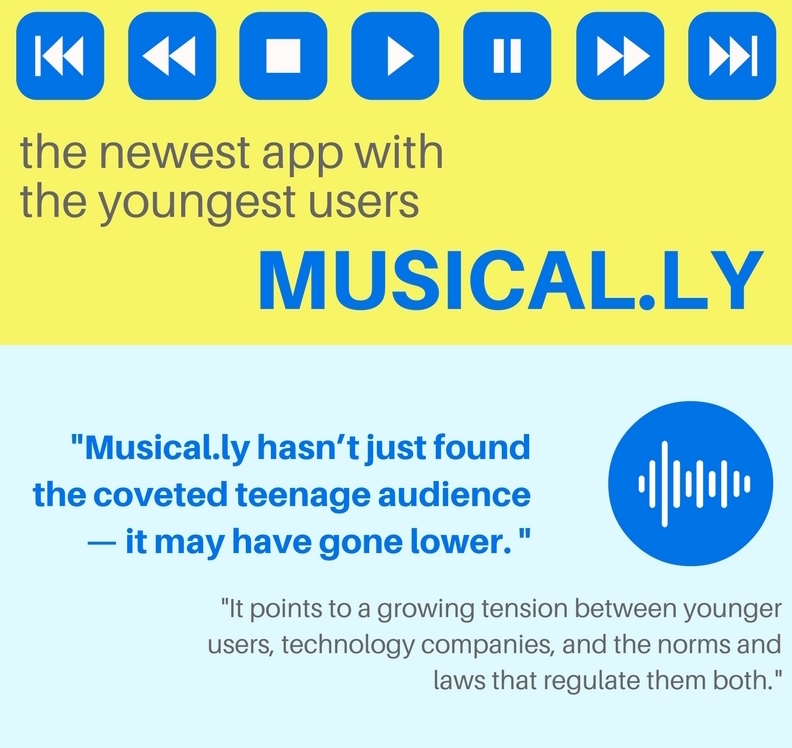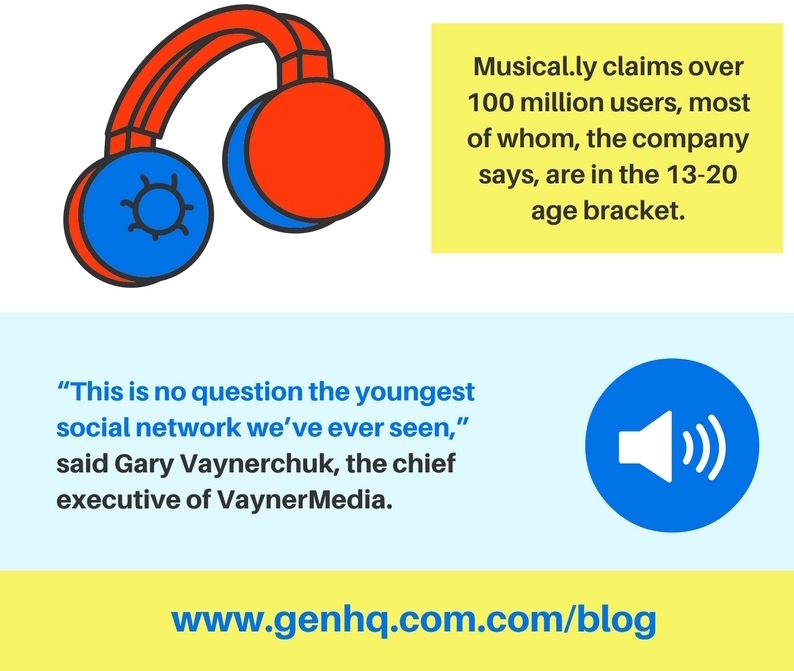Lately, it seems as if playgrounds may have better foresight about technological trends than the latest press releases. This is especially true when it comes to smartphone apps, where the most popular apps, such as Instagram and Snapchat, skew young at first but then trickle up to older generations.

And while this may not be a brand new phenomenon – think of how many more of your parents and grandparents are on Facebook now – the demographics for one app in particular are skewing younger than ever before.
According to a recent New York Times article, Musical.ly, a Shanghai-based music app with over 100 million users, is veering into uncharted territory with a huge portion of its users falling in the 13 and under age range.
Though most of Musical.ly’s users are in the 13-20 age bracket, the tendency for the app to appeal to younger users is challenging the norms and laws of technology companies. What happens when an app that appeals to younger users technically prohibits anyone under 13 to use it?
“This is no question the youngest social network we’ve ever seen,” said Gary Vaynerchuk, the chief executive of VaynerMedia, to the New York Times. “I would say that Snapchat and Instagram, they skew a little bit young,” he said. But with Musical.ly, “you’re talking about first, second, third grade.”
Apps are far from the only thing that has a trickle-up effect when it comes to age. According to our research at The Center for Generational Kinetics, the younger generation inspires older generations in everything from social media to cell phone use to what people wear to work.
“A year ago, there was basically nobody who was 40 years old on Snapchat,” Vaynerchuk said. “If Musical.ly can hold on, they will age up.”
Would you use an app if you knew your children were using it?Join the conversation on Twitter with @WhatTheGen or@JasonDorsey. And don’t forget to add your #generation!

